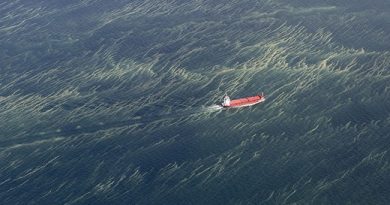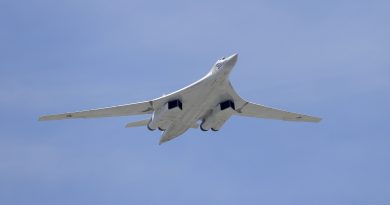Indigenous groups paying the price for Russia’s massive Arctic fuel spill
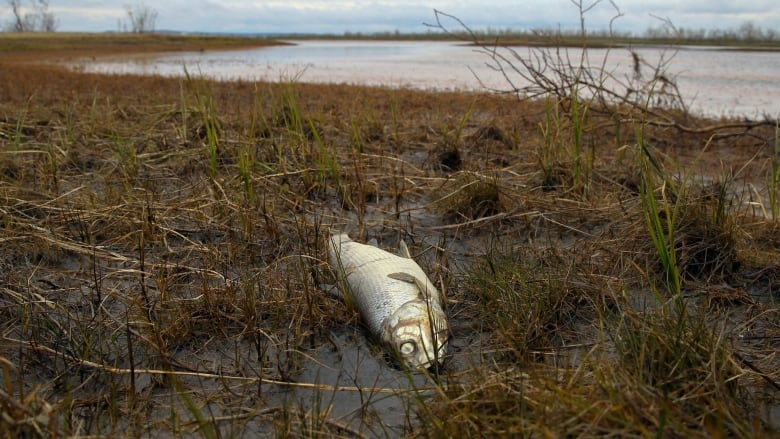
In 2017, the New York Times called Norilsk “Russia’s coldest and most polluted industrial city.” It may not be getting colder but it’s certainly now much more polluted than before.
The Arctic town, built on the site of a former gulag, is the site of a massive fuel spill that environmentalists have compared to the 1989 Exxon Valdez disaster.
On May 29, an aged fuel tank at the Norilsk Nickel plant lost pressure and released 21,000 tonnes of diesel into the Arctic subsoil and the waters of the nearby river Ambarnaya.
“In modern history, this is the biggest spill that I have ever seen,” said Alexey Knizhnikov, a leader with the World Wildlife Fund in Russia. It’s the biggest on-land spill in Russia since 1994.
“The scale of the damage to Arctic waterways is unprecedented,” said Dmitry Kobylkin, Russia’s ecology minister, in a statement.
The incident is an embarrassment for a Russian government that has tried to pursue an environmental agenda in some places while also aggressively expanding industrial operations in the Arctic.
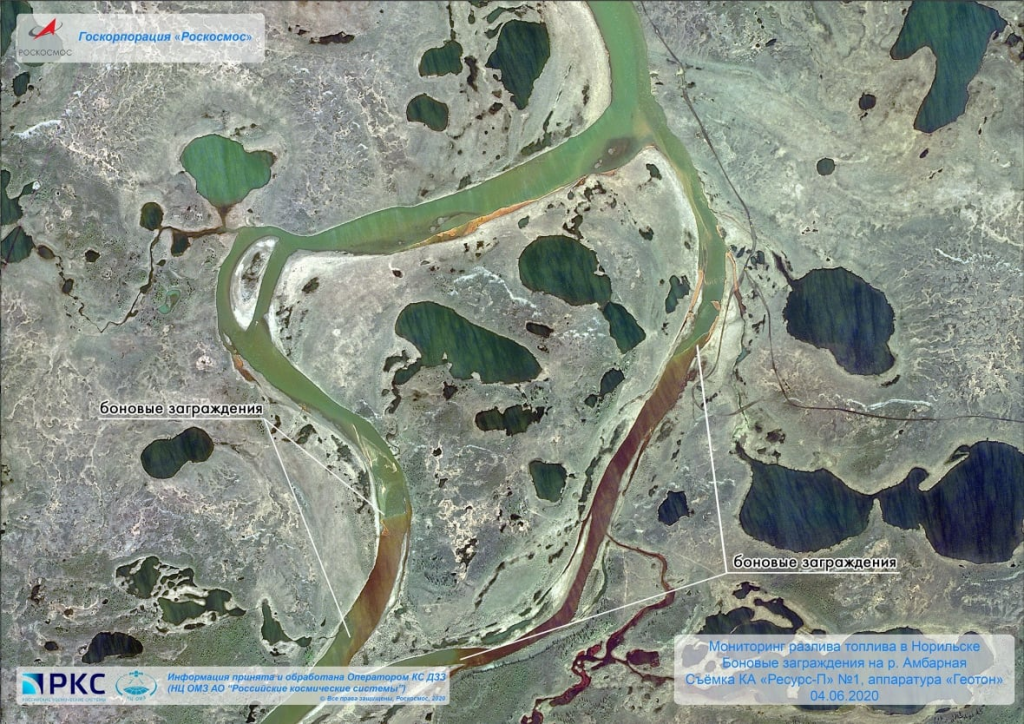
It’s also a devastating blow to an already withered landscape and the people who rely on it for their way of life.
“If you look at the country around Norilsk, it’s a real dead zone,” said Rodion Sulyandziga, an Udege Indigenous advocate and director of the Centre for the Support of the Indigenous People of the North. “It’s affected … people’s river, reindeer, lakes [and] soil.”
Historic amount of ‘voluntary compensation’ requested
The fallout from the spill has been swift. On June 10, Russian state investigators had arrested three plant managers. A few days later, the mayor of Norilsk was charged with criminal negligence for his delayed response.
Even before the arrests, Russian President Vladimir Putin scolded the region’s governor in a live television address for learning of the incident only days after the fact, on social media. He also castigated Norilsk Nickel’s executives in a widely-televised conference call.
“If you had changed [the fuel tank] on time there would not have been this ecological damage,” he said to a grim-looking quartet of executives, speaking from a field in Norilsk. “Study this as closely as possible inside the company.”
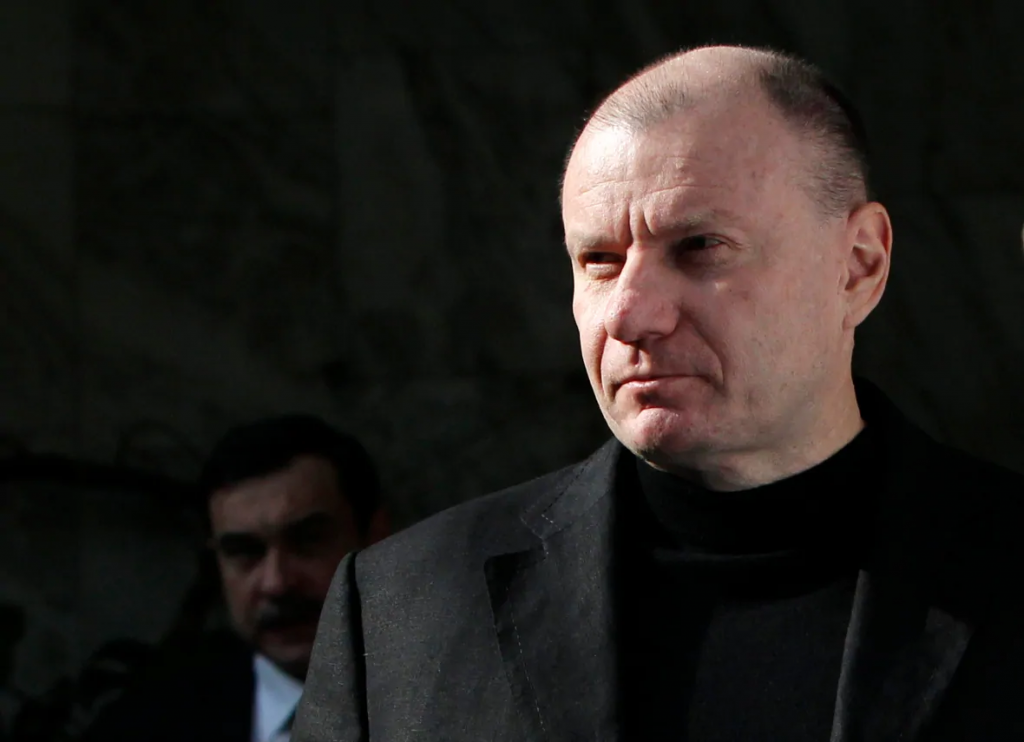
Norilsk Nickel is the world’s largest producer of nickel and palladium. It has made its majority shareholder, Vladimir Potanin, the richest man in Russia.
Facing Putin’s public disapproval, Potanin said his company would cover clean-up costs, which he estimated at nearly $200 million.
But Russia’s regulator, Rosprirodnadzor, came in with a higher estimate: $14 million for soil restoration alone, plus a further $2.8 billion for cleaning up the waterways.
“This is definitely a huge amount. We’ve never got such penalties for other environmental violations,” said Knizhnikov.
The company is contesting the request for “voluntary compensation” — which is equivalent to about one-third of one year’s profits. There is precedent they may succeed.
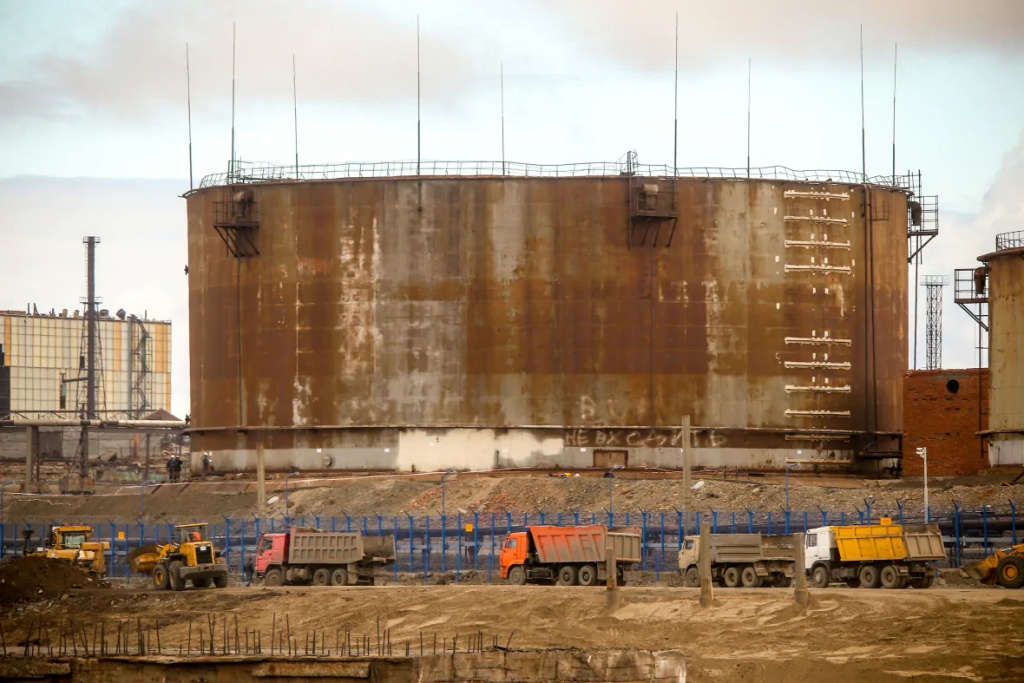
“Very often companies go to the court, and unfortunately, very often, [the] company wins,” said Knizhnikov. “It’s very likely this huge amount will not be paid.”
Kobylkin said the company had “every right” to contest the fine in court. But for Knizhnikov, it may be in the company’s long-term interests to take a bigger hit.
“If they refuse to pay big money, they will get [an] even worse image, not only in Russia but on a global scale,” he said.
Spill undermines Russia’s development agenda
One reason the spill has attracted such a severe response, experts say, is its consequence for Russia’s own image.
Small spills are a chronic issue in the Russian Arctic, according to Laura Henry, a Russia expert at Bowdoin College — just yesterday, Norilsk Nickel reported another one, of 45 tonnes of aviation fuel, from a pipeline to the west of Norilsk. But Henry says, more often than not, they are covered up before they make the headlines.
The magnitude of this spill meant images were spreading on social media before Russian authorities were even informed, attracting international attention and marring Russia’s environmental image.
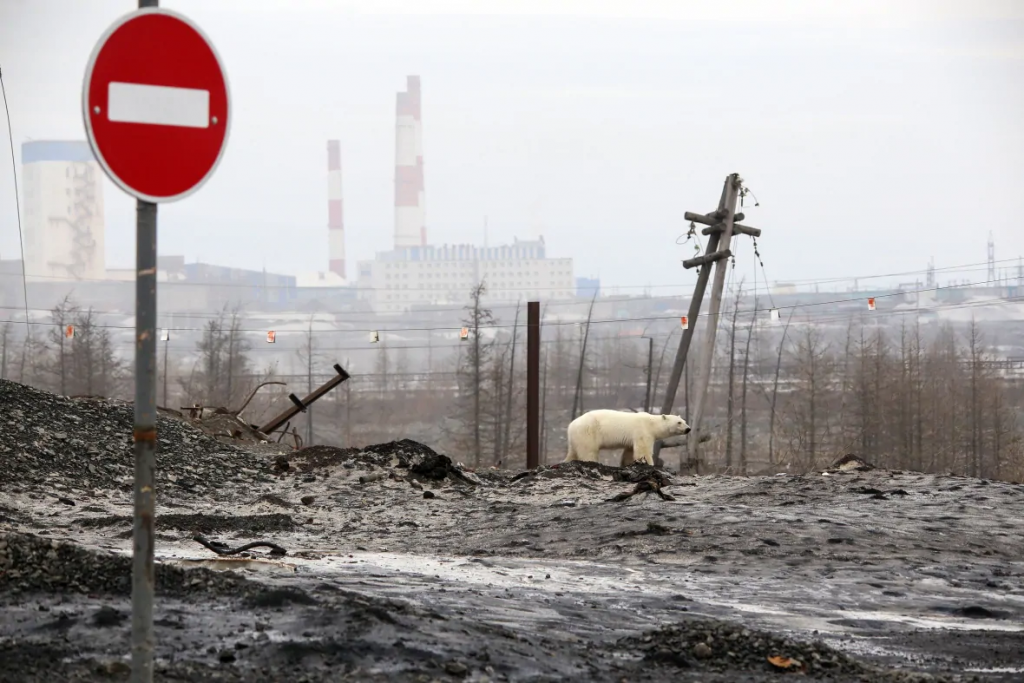
Vladimir Chuprov, the campaign director for Greenpeace Russia, says it also “hit Putin’s image personally.”
Russia will chair the Arctic Council again next year and Putin has publicly stressed environmentally sustainable Arctic development as a key part of its mandate, he said.
The spill has domestic consequences as well. Putin has suggested the economic opportunity posed by a warming Arctic means climate change is “maybe bad for the world but not so bad for Russia,” Henry said. The spill — originally blamed on melting permafrost — has undermined that message.
It has also thrown into relief Putin’s complex relationship with oligarchs like Potanin. Henry said many already complain that Potanin’s “special relationship” with the Kremlin has allowed Norilsk Nickel to escape close environmental scrutiny, even as it makes public commitments to sustainability.
“Potanin is making an incredible fortune off of this company,” Henry said. That such a lucrative company failed to update such basic infrastructure “is probably frustrating” for Putin, she said.
Russia’s other oligarchs may also balk at this setback to their country’s environmental image.
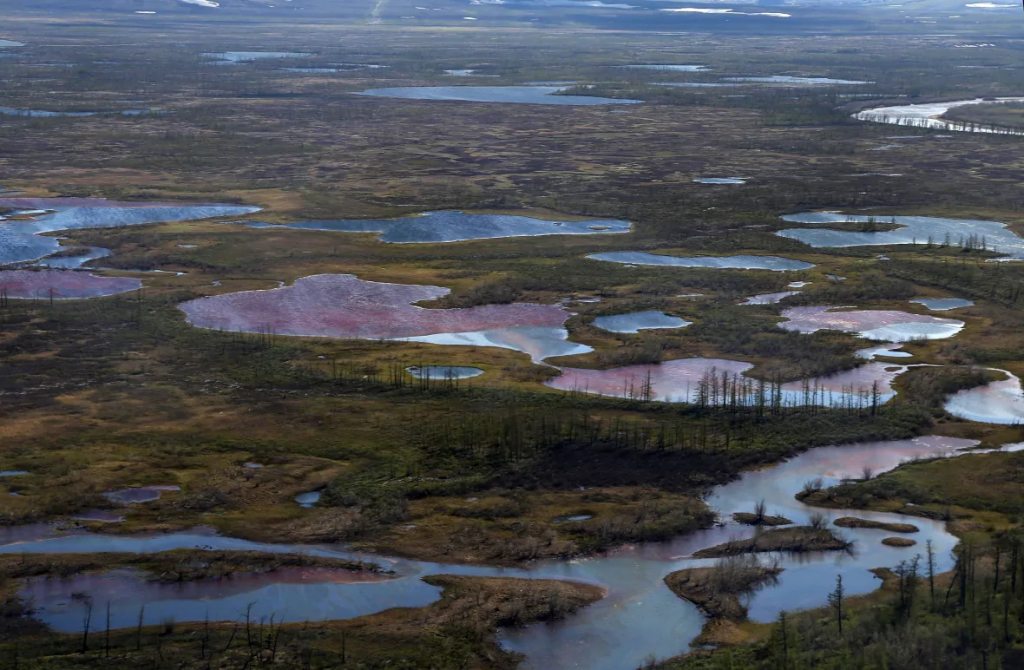
Bruce Forbes, a researcher at the University of Lapland’s Arctic Institute who studies Indigenous land use in Western Siberia, said many companies working in the Russian Arctic are actively increasing the amount of Indigenous consultation and environmental review they perform.
“They’re doing a job like Western countries would have to do if they went into the Arctic [National Wildlife] Refuge,” he said.
“The kinds of processes that need to go on, remarkably, have been going on. But that isn’t counting the spills.”
Indigenous groups bear the brunt of disaster
For the Indigenous people of the region, this spill can be seen as another indication of the “gap between declarations and reality,” Sulyandziga, the Indigenous advocate, says.
“On the one hand, the Russian constitution guarantees Indigenous people’s rights but in terms of implementation … it’s poor. It’s nothing,” he said.
The Dolgans, Nenets, Nganasans, Evenki and Enets all hunt, fish, and herd reindeer among the lakes and rivers north of Norilsk. But the land has long been poisoned by industrial waste.
In 2016, local Indigenous groups noted with alarm that the waters of the nearby river Daldykan had turned blood red, which Norilsk Nickel suggested was natural. They later acknowledged a spill of industrial wastewater was responsible.
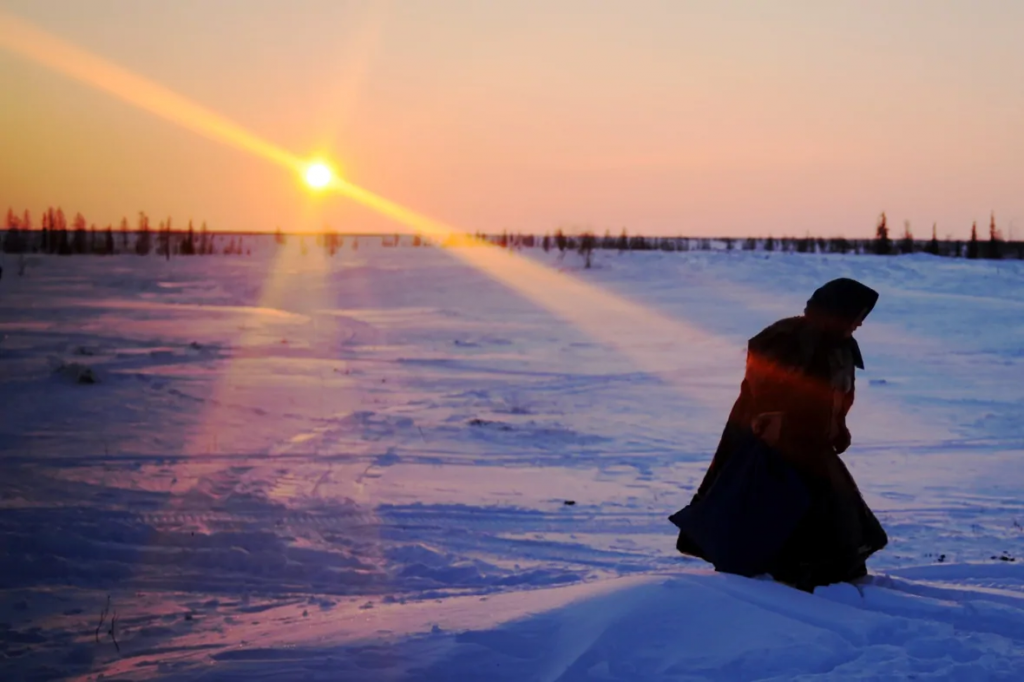
The waters of that river eventually flow into Lake Pyasino — now so toxic it is almost entirely devoid of fish. The waterways downstream are crossed by the world’s largest wild reindeer herd, which has shrunk by more than 40 per cent since 2000.
“The legacy of the past, it’s very destructive,” said Sulyandziga. “It is still very dangerous to hunt, to eat.”
Sulyandziga said once the scale of the environmental damage is clear, work should start on a “working plan for Indigenous people … [to address] access to traditional food, access to traditional activity.”
But Indigenous people’s power to advocate for their interests is weakening. Government crackdowns on foreign-funded NGOs led to Sulyandziga’s own Centre for the Support of the Indigenous People’s of the North being deemed a “foreign agent” and liquidated by the courts last year.
Indigenous activism, as a form of ethnic activism, can be interpreted as separatism, said Sulyandziga.
“We should be very careful,” he said.
But in light of this latest spill, Sulyandziga said, Indigenous advocacy is even more important.
“I believe nature already is avoiding us because something is wrong,” he said. “Indigenous people should continue fighting, not only for our cultural heritage but also for our natural heritage.”
Related stories around the North:
Canada: New “Frankenstein” shipping fuel could further pollute the Arctic, environmental groups say, Radio Canada International
Finland: Finland investigates oil leak risks from Baltic Sea shipwrecks, Yle News
Greenland/Denmark: Greenland and Denmark finalize cooperation agreement on marine pollution response, Eye on the Arctic
Norway: New guideline launched for Arctic-specific risk assessment in shipping, Eye on the Arctic
Iceland: Iceland to restrict heavy fuel oil use in territorial waters, Eye on the Arctic
Russia: Russian watchdog seeks nearly $3B in damages over Arctic fuel spill in Siberia, Thomson Reuters
United States: Carnival Corporation ships switch to cleaner fuel on Arctic cruises, Radio Canada International

